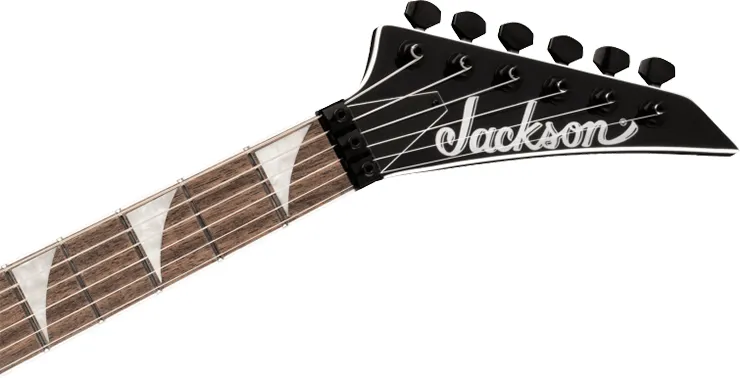What Is Laurel?
Indian laurel, or simply laurel, is a hardwood taken from the Terminalia elliptica (or tomentosa) tree. It’s common throughout South Asia, particularly India, and can grow up to around 30 metres tall. Laurel has a range of uses, including furniture, boatbuilding, cabinetry, and musical instruments.
How Is Laurel Used in Guitars?
Although it’s far from a standard option, laurel occasionally appears on the back and sides of acoustic guitars. It isn’t the easiest wood to bend, however, so laurel acoustic bodies are typically confined to small runs from boutique manufacturers. But laurel really shines on fretboards, where it is becoming a more popular option for electric and acoustic guitars and basses.
Why Is Laurel Used in Guitars?
While the traditional big three fretboard woods (ebony, rosewood, and maple) are still dominant, some options are becoming increasingly unsustainable. Of particular concern is the CITES-listed rosewood, perhaps the most popular fretboard wood. As guitar makers look for more sustainable alternatives, laurel has stood out as one of the most promising. Readily available and with incredibly similar looks and tonal characteristics to rosewood, its popularity is increasing, and it is a strong future contender for the most used fretboard wood.
How Do Laurel Fretboards Sound?
Laurel’s sound is overall incredibly akin to rosewood. Its similar hardness and durability give it a comparable feel when playing, and sonically the difference is minimal. Keen ears might notice that laurel is a little brighter, with slightly more emphasised highs and a little more restrained mid-range tone.
Is Laurel Sustainable?
Abundantly found across India and South Asia, laurel is readily available with no immediate sustainability concerns. It doesn’t appear on conservation lists like the IUCN Red List or the CITES agreement, making it an excellent sustainable choice for guitar building.
Are Laurel Fretboards Durable?
With a Janka Hardness Rating of 2340 and a dried weight of around 855 kg/m3, laurel has very similar physical characteristics to East Indian rosewood. Laurel is a very stable and durable wood that can withstand years of daily abuse. It certainly doesn’t easily mark from normal usage.
Are Laurel Fretboards Easy to Maintain?
Laurel is easy to maintain and doesn’t require any more care than you would generally afford your axe. You can remove dirt with a dry microfiber cloth, and as laurel fretboards are unfinished, you’ll just need to apply a small amount of a suitable oil every six months or so. Lemon and mineral oils are preferred by some, but if you’re in any doubt, choose an oil designed especially for guitar fretboards, such as those offered by Jim Dunlop and D’Addario.
What Are the Advantages and Disadvantages of Laurel?
| Pros | Cons |
|---|---|
| Sustainable | A little brighter than rosewood |
| Cheaper than rosewood | Can be lighter in colour than rosewood |
| Well-balanced sound | Not as water-resistant as rosewood |
| Attractive dark appearance | Can be more open-pored – leading to ingrained dirt |
| Strong and stable | |
| Good hardness |
Is Laurel a Good Alternative to Rosewood?
Rosewood has been one of the top dogs in the world of fretboards for years. As such, many guitarists will naturally continue to prefer it over other choices. But as woods like rosewood become less available, luthiers will move with the times and increase their use of alternatives.
In the specific case of laurel, we could well be on to a winner. Arguably no other alternative wood can claim to be as similar to its OG counterpart as laurel can to rosewood. Throw in its abundance and lower price, and laurel makes a serious claim to be the number one rosewood alternative.
Laurel Fretboard Alternatives
The clear alternative to laurel would be rosewood, although that might depend on budget – guitar makers are increasingly reserving rosewood for more premium models. Instead, you could consider one of the other very competent rosewood alternatives, Such as pau ferro, or even an engineered material like Rocklite.
For a change of tonal properties, you might want to look into maple if you’re after a brighter sound or wenge to give a slight kick to the lows and mids.
Find Your Laurel Guitar
If laurel sounds like the perfect eco-friendly alternative to rosewood for you, why not try out our Finder tool and start the search for your next guitar? Just enter your required search parameters and see what takes your fancy!

